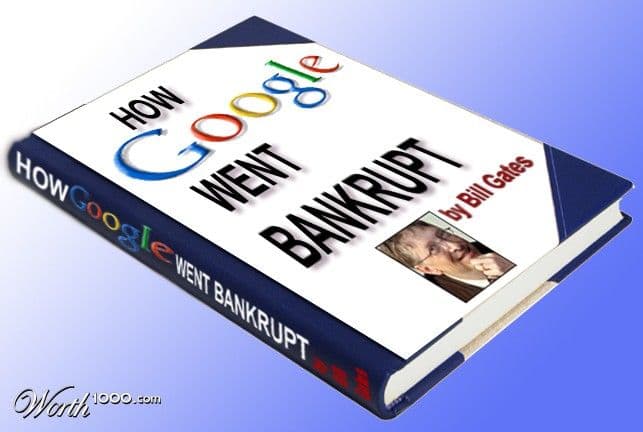BoSacks Readers Speak Out: Why Are Book/Magazine Sales Slipping in Big Cities?
By BoSacks
Tue, Jun 7, 2022

Re: Why Are Book Sales Slipping in Big Cities?
B&N shuttering some of their larger format stores here in Chicago is a big part of the loss of sales in Chicago for magazines. Within the urban core, it could also be the increase in the cost of housing and everything else. Yes, that’s happening in smaller markets, but probably not to the extent that it is in larger cities.
(Submitted by Anonymous)
Re: Why Are Book Sales Slipping in Big Cities?
Regarding the PW piece about book sales in big cities, I think the article omits some factors that may also be important to the story; the analysis is not subtle enough.
I really think that you have to delve deeper into the data to really understand what’s happening. Sure, we all know that in really big cities like NYC that office workers haven’t fully gone back to the office (or if they ever will), so of course you’d expect bookstores in Manhattan to show weakness, and that until fairly recently tourist traffic has been far below 2019 levels—but what about bookstores in the residential boroughs? What about suburban ones? Are they counted as part of the “big cities” or are they broken out separately? In magazine sales I’ve seen stronger numbers coming from suburban stores for the past two-plus years, and weakness in many of our big-city markets, and that is almost entirely pandemic-related. For me it’s not about NYC vs. DFW, it’s NYC vs. Westchester.
The biggest factor I think this piece does not seem to factor in is inflation. In magazine sales I’m seeing softness in 2022 that, were to chart it on a graph with the average price per gallon of gas each week would likely show strong correlation. I have to think that books are fairly impacted by it too—maybe people will visit a bookstore and, instead of buying two or three books they stick to just one (if you’re a big reader like me of course you will sacrifice other things for books—you won’t give up book buying entirely). Ironically, gas inflation is less of a factor in big cities where people are less auto-dependent, and more of a factor in places like sprawling Atlanta and DFW.
Also, regarding book sales specifically: Donald Trump is no longer our president—he lost, fair and square. When he lived at the White House there was so much energy poured by authors and publishers into books about him, his corruption, the death of democracy, and so on, that they were riding a wave that, pandemic or not, could not continue in 2021 and 2022. (Likewise, the George Floyd-related boom in books about race could only be sustained when left-leaning white people cared enough to buy them.) Now, he’s still around, still noisy, and democracy is still in danger (and would be even without him, as the GOP has gone full authoritarian, a process that has taken 50 years but is now largely complete, save people like Liz Cheney and Mitt Romney), so perhaps there will be a book boom in the period between this year’s midterm elections and the presidential one in 2024. The decline in adult book buying has been partly masked by increases in kids’ books; hopefully that trend will continue. We’ve certainly seen strength in magazines aimed at kids, all through the worst part of the pandemic and continuing today, when the still-going pandemic is somewhat less of a concern.
All of that said, there is still some merit in the idea that places like Atlanta and DFW (and Denver and Phoenix and other sunbelt cities) are enjoying population growth that was probably accelerated by the pandemic and the rise of Zoom. That crime is up (if not up to 1990s levels, thankfully), that homelessness is up (far past 1990s levels, unfortunately) and that housing prices are way, way, way up in big cities (good for those of us who own our homes, bad for young people and people of color of all ages)—these are also factors supporting the idea that a demographic shift is underway. Young people will always flock to big cities, but the middle-aged and older people tend to leave them for life-stage reasons—and it’s middle-aged and older people who buy the most books.
I don’t think there’s a very strong correlation between magazines and books. There are too many other factors causing magazines to decline, factors that are irrelevant to book sales trends. Yes, we see fewer sales in the densest cities, sales that were dependent on people buying magazines to read on their lunch hour or on the bus or subway ride home, but we still reasonably decent sales in those places. What would not sell in dense urban locations are kids’ magazines, which are strong sellers these days in suburban locations. So if there’s weakness in magazine sales in big-city stores, part of it is due to the lack of kids living in those places. Also what does not sell as well in places with high percentages of renters (e.g., big cities): shelter. This category is booming—but only in the suburbs. Likewise for cooking magazines—fewer frequent restaurant-goers in the suburbs compared to childless big city couples and singles who rarely cook. I guess what I’m saying is that right now certain magazine subject matter is selling well in certain places because of who they attract as readers—and it’s the same scenario in Atlanta (urban Midtown vs. Cobb County) and New York (NYC, particularly Manhattan, vs. NY/NJ/CT suburbs). Ditto for Seattle, Washington DC, Chicago, you name it.
(Submitted by Anonymous)
RE: The Long-Challenged Saga Of Celebrity Print Magazines
I was doing a little research on “top magazines” and ran into a rather alarming phenomenon that I was not expecting. All the grocery stores here (Washington DC Metro Area) no longer have mainlines !!! (Giant, Safeway)….
Now I will say, the checkouts were well merchandised i.e. all the kids/teen titles were together, the celebrity titles together. But I was shocked to go to 2-3 stores…large stores….and find no mainline.
Wondering if others in the industry are seeing this nationally?
(Submitted by a Director, Print Operations)
Re: Apple's privacy changes are expected to wipe almost $16 billion from Meta, YouTube, Snap, and Twitter's revenues this year
I'm feeling pretty good about my apple phone right about now. And no I don't feel sorry for those who can no longer track my every move. It's not like targeted ads were terribly useful from my point of view. (Stuff I already bought, or ads for stuff I would never buy. (not my age, sex, interest, etc.) I rarely post to social media anything that really says anything since it tells them too much about me.
(Submitted by a Sr. Business Analyst)
